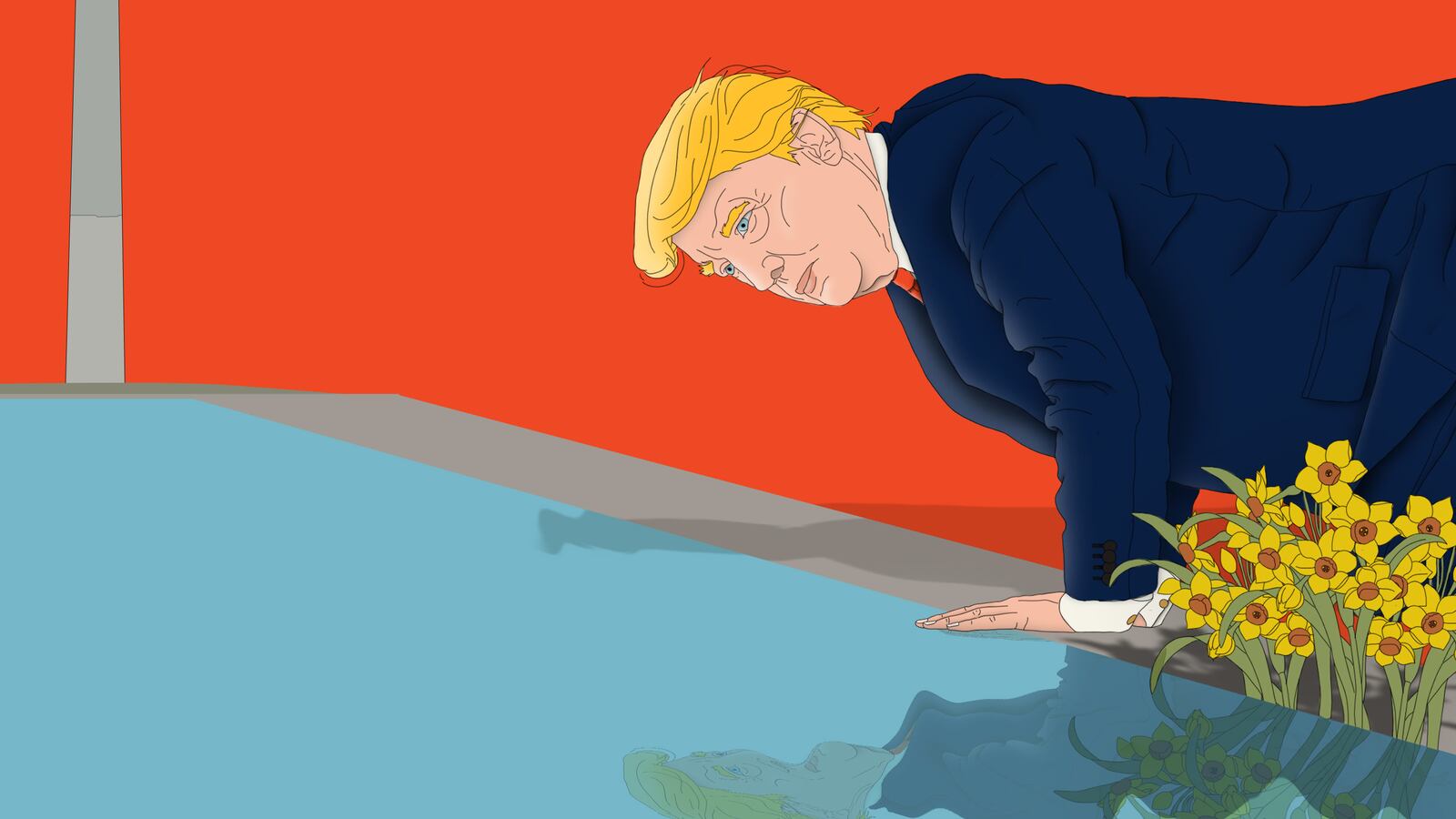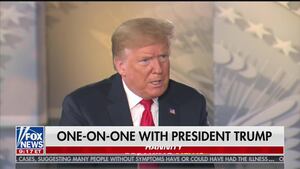At a Thursday night “town hall” event hosted by his most obsequious of interviewers, Fox News star Sean Hannity, Donald Trump struggled with the simplest of questions: What did he want to accomplish in a second term in office?
The president had no answer. And the rambling response he did offer raised the specter that there actually is no second-term agenda in place.
That’s not true. The president and his administration have been drawing up plans on what to prioritize, should he vanquish former Vice President Joe Biden. Half a dozen knowledgeable sources—administration officials, campaign aides, and people close to President Trump—tell The Daily Beast that planning has long been underway for potential 2021 policy pursuits. But a prevailing interest driving Trump’s desire for another four years is not ideological. It’s reputational.
Two of those sources said that one of the president’s real motivations for running is to simply avoid embarrassment. He doesn’t want to be humiliated by the title of “one-term president.”
“The president has told me [on multiple occasions] that he is determined to not be a one-termer, and says that history forever remembers them as ‘losers,’” said a former senior Trump administration official. “A lot of it is about legacy for him and how he will be remembered. And if he loses, I don’t think he’ll take a defeat [at the hands of] Biden, of all possible people, lightly.”
Another individual familiar with the president’s private remarks said they recalled Trump making similar comments as far back as late 2018. Trump, the source said, specifically referenced former President Jimmy Carter as an example of a modern political “loser,” and how “you never want to be that guy,” the source said, paraphrasing Trump.
All politicians, to a certain degree, are motivated by the desire to win office. But Trump stands out for the degree to which ego-stroking itself is the primary inducement for much of what he does.
All of which is not to say that he and his advisers don’t have other interests in mind as they pursue re-election. The president and administration brass have, in recent months, discussed plans to continue stacking the judiciary with conservative judges, expanding the conservative majority on the Supreme Court (should the likelihood of another vacancy, or other vacancies, occur), slashing taxes, and further reducing both legal and illegal immigration numbers.
“[The president] put together a plan on legal immigration reform…that I worked on [two years ago]. That would be a real accomplishment for Trump if he gets re-elected. I would actually have some degree of hope that that could get done. A lot of ideas in the reform bill that was put together, Democrats have embraced in the past,” Stephen Moore, a conservative economist at the Heritage Foundation who has advised Trump for years, said in a brief interview on Friday.
“There would also be a huge push to make the Trump tax cuts permanent,” Moore added, recounting that in private conversations with the president, Trump has been emphatic that slashing taxes again would be a top priority for a second term. “It’s an important part of his legacy. He is 100 percent committed to making them permanent,” Moore said.
Beyond the standard conservative fair, Trump and his team have also repeatedly talked about using the second term to finally catch their white whale, one they’ve been so unsuccessful in achieving that it’s become a recurring punchline in the West Wing: a major infrastructure investment.
“‘Infrastructure Week’ never ends,” a senior White House official joked.
Advisers acknowledge that any Trump second-term agenda would be severely complicated by two major components: the lingering effects of the coronavirus, which has claimed more than 120,000 lives in the United States and torpedoed the American economy; and the likelihood of Democratic control of one, or perhaps two, chambers of Congress. Re-election, in short, would come with the demand to repair the damage from the pandemic and more protracted partisan squabbles and standoffs that yield scant major legislative victories.
But to get to even that point, Trump must win first. And not every Republican working to re-elect the president believes that he has made a coherent or winning sales pitch to voters, or even believes he’s defined himself properly as a candidate. As poll after poll has recently shown the president dramatically trailing Biden nationally and in critical swing states, Trump has leaned heavily on senior campaign aides and political lieutenants to help reassure him that all is well, even if it’s very much not.
“From May to Election Day in 2016, there [are] 173 national polls on the Real Clear Politics website,” John McLaughlin, a top Trump pollster, told The Daily Beast on Wednesday, echoing arguments that he’s made directly to the president. “Only 13 had Trump winning. On Election Day 10 of the final 11 had him losing and they gave him only 164 electoral votes. It’s deja vu all over again. Same polls. Same results. Same message. They just don’t want the president to be re-elected.”
Still, others in the Trump orbit freely admit that the true obstacle right now to his re-election isn’t the news media, or pollsters, or even the Democrats. It’s Donald J. Trump.
Ed Rollins, a longtime GOP strategist who leads the pro-Trump group Great America PAC, was harshly critical of the president’s campaign relaunch in Tulsa, Oklahoma, calling last week’s rally a clear-cut “disaster.” On Friday afternoon, Rollins said that for Trump to win, he now has to “put out his plans on what he’ll do in a second term, and where he’ll take the country. Obviously, he’s not there at this point in time.”
“And he should get there,” the strategist bluntly added. “I don’t want to talk about the past. I don’t care what Biden did 40 years ago. I care what Biden can do as president, especially if he has a [Democratic] House and Senate… The president likes to attack, he likes to fire off his Twitter gun, and he likes to beat up people. But at this point in time, the polls have given him where his targets are and where he has to go.”
Various Trump advisers have long said that if the president hones his message, and quits running off on bizarre and damaging tangents, he’d have a good shot at victory. However, several of them privately concede that this president’s apparent inability to stop being consumed by wild personal grievances and petty feuding has continued to hobble his chances.
“Before the booming economy was artificially interrupted by an unprecedented pandemic, President Trump’s pro-growth policies, tax cuts, and deregulation delivered record economic success—and he’ll do it again,” Trump campaign spokeswoman Samantha Zager said in a statement on Friday.
During the Fox town hall-style event on Thursday, instead of just saying some version of that, the president was content to simply brag about his “experience” in office and also bash his former national security adviser, John Bolton—who says a Trump re-election would be catastrophic for the country—as a warmongering “idiot.”








